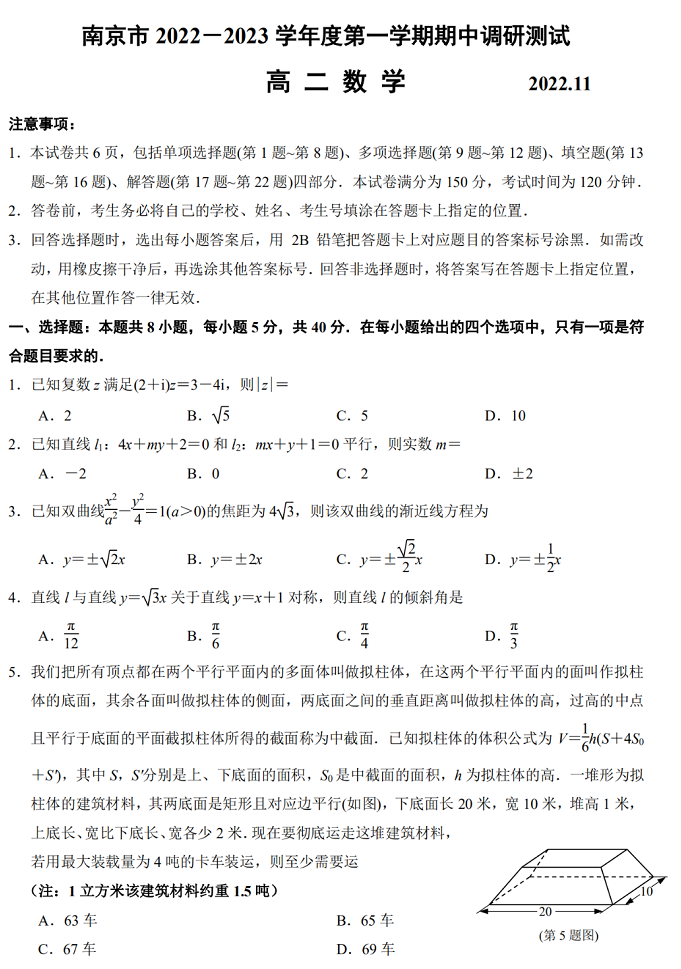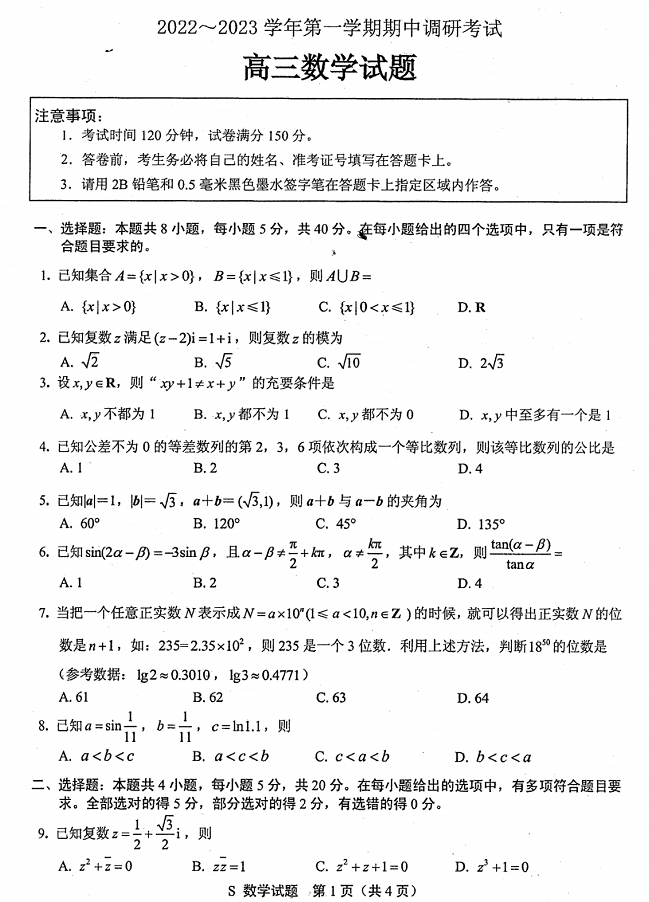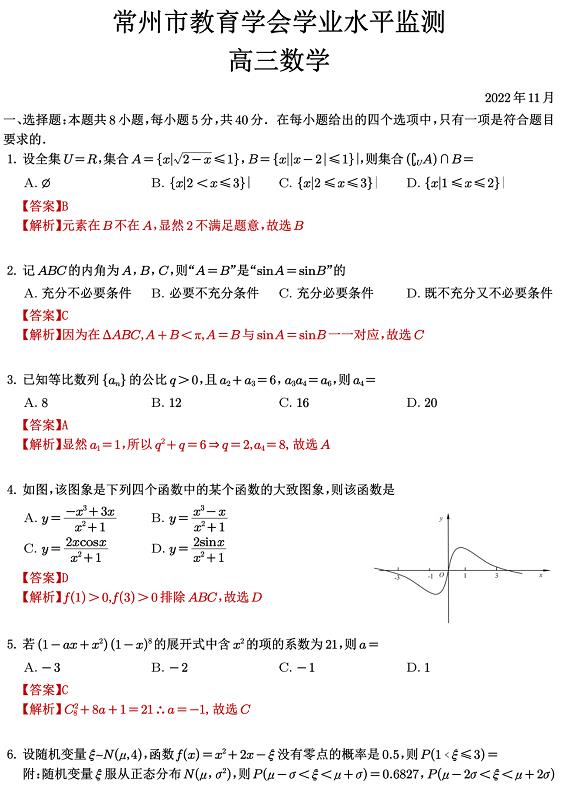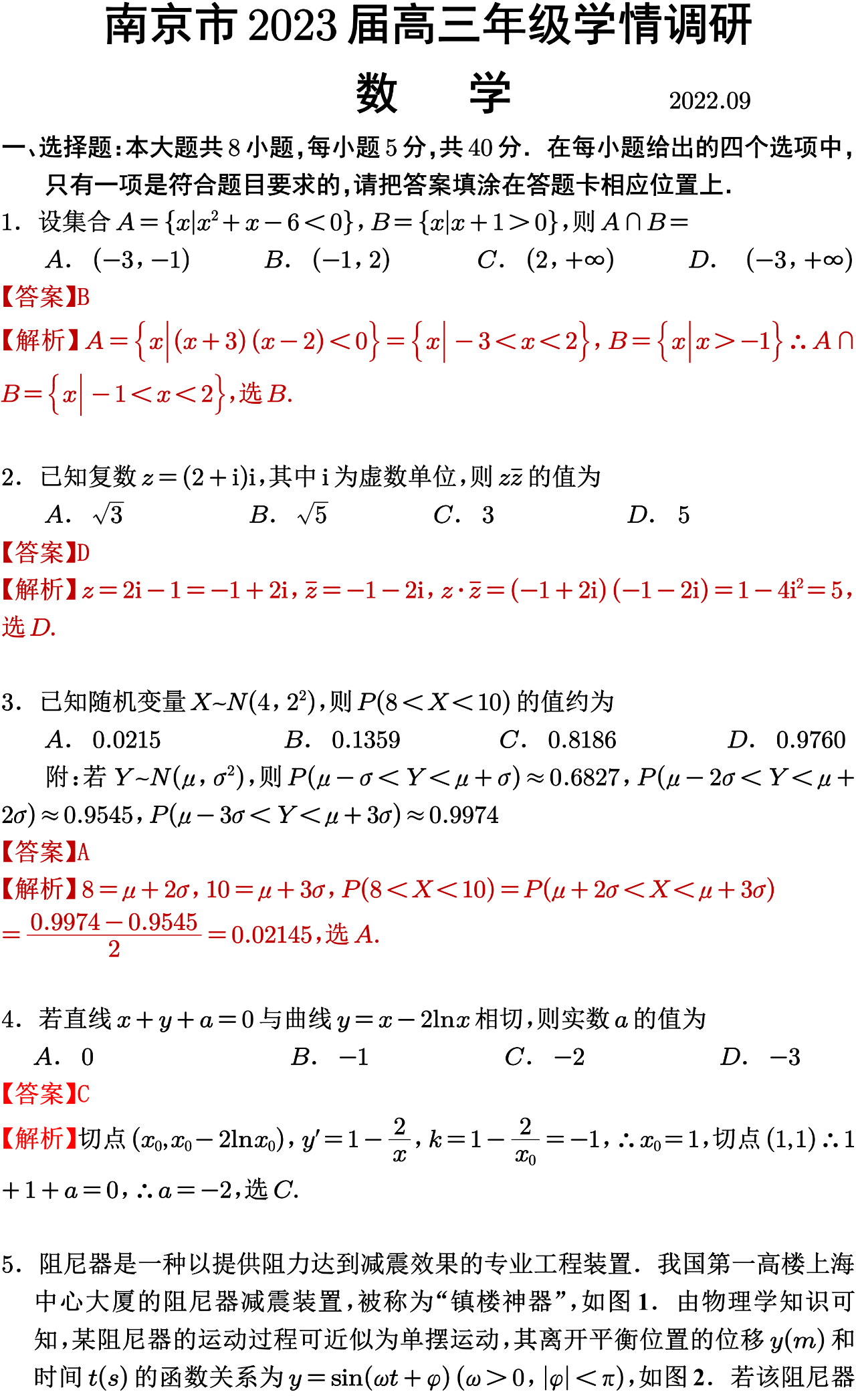以下由初中一对一辅导小编为学习新人教版初二英语的学生们整理的前五单元重点语法和重点短语,如果能在期中考试之前将这些考点消化,相信你们能考个不错的成绩。

Unit1 Where did you go on vacation?
【重点语法】
不定代词:不指名代替特定名词或形容词的代词叫做不定代词。
用法注意:
1. some 和any +可数名/不可数名。
some 多用于肯定句,any多用于否定句、疑问句和条件从句 。有些问句中用some,不用any, 问话者希望得到对方肯定回答。
2. 由some, any, no, every 与 body, one, thing构成的复合不定代词作主语时,其谓语动词用三单。
3. 不定代词若有定语修饰,该定语要置于其后:如:something interesting
【重点短语】
1. buy sth for ab./ buy sb. sth 为某人买某物
2. taste + adj. 尝起来……
3. nothing...but + V.(原形) 除了……之外什么都没有
4. seem + (to be) + adj 看起来
5. arrive in + 大地方 / arrive at + 小地方 到达某地
6. decide to do sth. 决定做某事
7. try doing sth. 尝试做某事 / try to do sth. 尽力做某事
8. enjoy doing sth. 喜欢做某事
9. want to do sth. 想去做某事
10. start doing sth. 开始做某事=begin doing sth.
11. stop doing sth. 停止做某事 区分: stop to do sth. 停下来去做某事
12. dislike doing sth. 不喜欢做某事
14. so + adj + that + 从句 如此……以至于……
16. tell sb. (not) to do sth. 告诉某人(不要) 做某事
17. keep doing sth. 继续做某事
18. forget to do sth. 忘记去做某事 / forget doing sth 忘记做过某事
【词语辨析】
1. take a photo/ take photos 拍照
quite a few+名词复数 “许多…”
2. seem + 形容词 看起来…... You seem happy today.
seem + to do sth. 似乎/好像做某事 I seem to have a cold
It seems + 从句 似乎..…. It seems that no one believe you.
seem like ... 好像,似乎….. It seems like a good idea.
3. arrive in +大地点= get to= reach+地点名 “到达......”
arrive at +小地点
(注:若后跟地点副词here/there/home, 介词需省略,如: arrive here; get home)
4. feel like sth 感觉像…
feel doing sth. 想要做某事
5. wonder(想知道)+疑问词(who, what, why)引导的从句。
6. because of +名/代/V-ing
because+从句
He can’t take a walk because of the rain.
I don’t buy the shirt because it was too expensive.
7. enough +名词 足够的…...
形容词/副词+enough
Unit2 How often do you exercise?
【重点语法】
1. 频率副词: always, usually, often, sometimes, never
频率副词在句中通常放在实义动词之前, be动词或助动词之后。常用于一般现在时态中。
2.“次数”的表达方法
一次 once, 两次twice,三次或三次以上:基数词+ times, 如:three times, five times,
3. how often“多久一次”问频率,回答常含有频率词组或短语。
常见的how疑问词:
1)How soon 多久(以后)
—How soon will he be back?他多久能回来?
—He will be back in a month. 他一个月后能回来。
2)how long “多久”
—How long did it take you to clean the house? 你打扫房子用了多久?
—It took me half an hour to clean the house. 我打扫这房子用了半小时。
3)How many+名复
How much+不可名
“多少” 问数量(how much 还可问价格)
【重点短语】
1. go to the movies 去看电影
2. look after = take care of 照顾
3. surf the internet 上网
4. healthy lifestyle 健康的生活方式
5. go skate boarding 去划板
6. keep healthy=stay healthy 保持健康
7. eating habits 饮食习惯
8. take more exercise 做更多的运动
9. the same as 与什么相同
10. be different from 不同
11. once a month一月一次
12. twice a week一周两次
13.make a difference to 对......有影响/作用
14. most of the students=most students
15. shop=go shopping=do some shopping 购物
16. be good for 对......有益
17. be bad for 对......有害
18. come home from school放学回家
19. of course = certainly = sure 当然
20. get good grades 取得好成绩
21. keep/be in good health 保持健康
22. take a vacation 去度假
【词语辨析】
1. maybe / may be
maybe 是副词,意为“大概, 可能,或许”,一般用于句首。May be是情态动词,意为“可能是...,也许是...,大概是...”.
The baby is crying. Maybe she is hungry.
The woman may be a teacher.
2. a few / few / a little / little
|
a few (少数的,几个,一些) |
a little (一点儿,少量) |
表示肯定 |
|
few (很少的,几乎没有的) |
little (很少的,几乎没有的) |
表示否定 |
|
修饰可数名词 |
修饰不可数名词 |
People can live to 100, but few people can live to 150.
There is little time left. I won’t catch the first bus.
Could you give me a little milk?
3. hard / hardly
hard作形容词,意为“困难的,艰苦的,硬的”;作副词,意为“努力地,猛烈地”。hardly为副词,意为“几乎不”。
The ground is too hard to dig.
I can hardly understand them.
It’s raining hard. The people can hardly go outside.
4. As for homework , most students do homework every day .
as for...意思是“至于;关于”,+名词、代词或动词的-ing形式(即动名词)。
如: As for him,I never want to see him here.
至于他,我永远不希望在这里见到。
As for the story,you'd better not believe it.
关于那故事,你较好不要相信。
5. That sounds interesting.
这是“主语+系动词+表语”结构的简单句。sound(听起来),look(看起来),smell(闻起来),taste(尝起来),feel(觉得),seem(好象),grow(变得),get(变得)等词在英语中可用作系动词,后跟形容词作表语。如:
It tastes good. 这味道好。
The music sounds very sweet. 这音乐听起来很入耳。
The smoke grew heavier and heavier. 烟雾变得越来越浓了。
6. percent 名词,意为“百分之……”
百分数的表示方法:基数+ percent (不用复数形式),percent做主语时,谓语动词的数要根据其后面的名词来确定。
50%:fifty percent 百分之五十
Fifty percent of the apples are bad. 50%的苹果都坏了。
Twenty percent of the meat is in the fridge. 20%的肉都在冰箱
7. not… at all 意为“一点也不”,not应放在be动词、情态动词或助动词之后。
The story isn’t interesting at all. 那个故事一点也没有趣。
8. It is + adj. to do sth. 做某事是……的。
It is interesting to play computer games. 玩电脑很有趣。
9. take, spend, pay
It takes sb. some time to do sth. 意为“花费某人……时间来做某事”。
人(sb.) spend 时间/钱 on sth. “买某物花了……钱”。
人(sb.) spend 时间/钱 (in) doing“花费多少时间来做某事”。
pay 的主语需要是人,而“花钱买某物”为pay...for...
10. however 副词,意为“然而,可是”,表示转折关系,可放在句首、句中、句末。
Unit3 I’m more outgoing than my sister.
【重点语法】
1. 形容词和副词的比较等级
(1)形容词和副词的原形就是原级
(2)比较级,表示较……或更……
(3)较高级, 表示较...。
2. 比较级句型:
(1)A + be动词+形容词的比较级+than +B “A比B更……”(注意:A与B需要是同级的,即需要是人与人,物与物进行对比)
(2)“A+实意动词+副词比较级+ than + B”表示“A比B…”
(3)比较A ,B两人/两事物问其中哪一个较…...时用句型:
“Who/which +谓语动词+ adj./adv.比较级,A or B ?”
Who is thinner, Jenny or Mary?
3. 比较级的特殊用法
(1)“比较级+and+比较级”,意为“越来越”。多音节比较级用“more and more+原级”
(2)“the+比较级(…), the+比较级(…)”意思是:”越…越…”The more, the better.
(3)主+ is + the 形容词比较级+of the two+名复 “主语是两者中较......的”
4. 两者在某一方面相同: A+谓语动词/be动词+as+ adj./adv.原级+ as+ B.
Helen is as tall as Amy.
Peter studies as hard as Tom.
表示两者在某一方面不及另一方时,用“not as/so+形容词或副词原级+as”
I am not as tall as my sister.
5. 形容词,副词比较级前的修饰语。
当需要表示一方过另一方的程度时,可以用much, a lot, a little, a bit, 等来修饰形容词比较级。注意: 比较级不能用very, so, too, quite等修饰。
【重点短语】
1. more outgoing 更外向/更开朗
2. as...as...与…… 一样
3. the singing competition 歌咏比赛
4. the most important 较重要的
5. be talented in music 在音乐方面有天赋
6. the same as 与……相同
7. care about 关心/留意/关注
8. be different from 与…...不同
9. be like a mirror 像一面镜子
10. as long as 只要;与…...一样长
11. bring out 显示/显出
12. get better grades 取得更好的成绩
13. reach for 伸手达到/达到
14. touch one’s heart 感动
15. in fact 事实上
16. make friends 交朋友
17. be good at 在某方面成绩好
18. the other 另一个
19. be similar to 与…相似
20. be good with 与…和睦相处
21. have fun=Have a good time 玩得开心
have fun doing sth 做某事很开心
22. do the same things as me. 做和我一样的事情
23. It’s+adj+(for sb.)to do sth. “做某事(对某人来说)是...的 ”
24 make friends with sb. 与某人交朋友
25. as long as 只要;既然,引导条件状语从句
【词语辨析】
1. be good at=do well in ,其后可接名词、代词或动名词,表示擅长......
2. care about 关心
care for 关爱
take care (当/小心)
take care of (照顾)=look after
3. make sb. do sth. : 让(使)某人做某事(make后跟不带to的不定式)
His father always make me get up before five o'clock.
make sb. +形容词:使某人保持某种状态
My friends always make me happy.
4. be like“就像…”I am like your sister.
look like “外貌上的像 ” I look like my sister.
5. That’s why+句子:那就是…的原因/那就是为什么…
That's why I study English hard. 那就是我努力学习英语的原因。
6. be different from 与……不同
反:be the same as 与…… 相同
7. though
① adv. 不过;可是;然而(句末补充说明使语气减弱)
② conj. 虽然;尽管=although,与but 不能同时用在一个句子中
He said he would come. He didn’t, though. 他说他要来,可是并没有来。
Though/Although he has been dead for many years, many people still remember him.
尽管他已经去世很多年了,但很多人仍然记得他。
8. get better grades 取得更好的成绩
9. does(助动词do/did),为了避免重复,可代替上文出现过的实意动词。
10. be good with sb. 与某人相处得好
Unit4 What’s the best movie theater?
【重点语法】
1. 形容词较高级: 用于三者或三者以上的人或事物相比较。
标志词:表比较范围时用in/of
形容词较高级前须加定冠词the,副词较高级前可省略the。
2. 表示“三者(或以上)中较……的”的句型
1)A + be + the 形容词较高级 + 表示范围(in/of介词短语)
2)A + 实意动词 + (the) 副词较高级 + 表示范围的of/in介词短语
3. 常用句式
1) Who/ Which…+ 较高级…, A, B or C ?
2) one of +the +形容词较高级 +名词复数形式, 意为“较…之一”。
3)序数词后跟形容词较高级
【重点短语】
1. so far 到目前为止,迄今为止
2. no problem 没什么,别客气
3. have….in common 有相同特征(想法、兴趣等方面)相同
4. be up to 由…...决定/是…...的职责
5. all kinds of … 各种各样的……
6. play a role in doing sth./ sth. 发挥作用,有影响
7. make up 编造(故事、谎言等)
8. for example=e.g. 例如
9. take …..seriously 认真对待
10. not everybody 并不是每个人
11. close to 离..….近
12. more and more 越来越……
【词语辨析】
1. How do you like +名/代/V-ing=What do you think of :“ 你认为…怎么样?”
2. Thanks for=Thank you for +名/代/V-ing:“感谢…”
3. You’re welcome. =Not at all. 不客气
4. talent 名(可)天赋
talent show 才艺表演
talented adj. 有天赋的
be talented in 在......方面有天赋
5. be good at 擅长… (= do well in)
反义短语:be poor / weak in 在...方面薄弱
be good for 对……有益,后跟人或事物;其反义短语是be bad for
be good to 对……好(和善;慈爱),相当于 be friendly to,后面通常接人
6. all kinds of 各种各样的
different kinds of 不同种类的
a kind of 一种…...
* kind of 有点+ adj.: kind of boring / fat /thin
7. win vt. 赢得+奖品 winner n. 赢者
8. watch sb. do sth. 观看某人做了某事
watch doing sth. 观看某人正在做某事
9. 举例:such as 常列举几个例子,不能穷尽,可和and so on(等等)连用;like可和such as互换;for example 一般只列举一个,作插入语用逗号隔开,可置于句首/句中/句末。
Unit5 Do you want to watch a game show?
【重点语法】
1. 询问某人对某物的观点及看法:What do you think of …?=How do you like…?
2. 描述喜好I love/ like/ don’t mind/dislike/can’t stand…
3. 复习巩固一般现在时态:主语+V+其他; 主语(三单)+V(三单)+其他)
【重点短语】
1. find out 查出/发现
2. be ready to do 准备做…
3. dress up 打扮/化妆成
4. take one's place 代替某人
5. do a good job 干的好/表演的出色
6. think of 想到/思考
7. game show 游戏节目
8. learn from 向…...学习
9. talk show 访谈节目
10. soap opera 肥皂剧
11. go on 继续
12. watch a movie 看电影
13. one of… 其中之一
14. try one’s best to =do one’s best to 竭尽全力
15. a pair of 一双
16. as famous as 一样闻名/出名
17. look like 看起来像
18. around the world 世界各地
19. have a discussion about 讨论…...
20. one day 有整天/某整天
21. such as 例如
22. a symbol of 一个象征/标志
23. something enjoyable 快乐的事情
24. interesting information 有趣的信息
【词语辨析】
1. want + n 想要……
want to do sth 想要做某事
want sb to do sth 想让某人做某事……
2. mind 介意,其后+名词/代词/V-ing
3. stand
1)“站, 站立” e.g. Stand up! 起立
2) “忍受” (多用于否定句、疑问句) , 后可+名/代/V-ing
4. plan vt. & vi.计划, 打算,plan to do sth.
plan 还可作名词,如:make plans 制定计划
5. v. discuss (讨论) + ion→ n. discussion
had a discussion about sth. 对某事进行讨论
6. happen v. 发生; 出现
sth+ happens to sb.”或“sth happened + 时间/地点”句式
7. 情态动词
may 语气弱于can,意为“可能”
might 表推测,语气较弱,意为“可能”
may/might not 表示否定推测时语气较弱,意为“可能不”
They may not be very exciting. 它们可能不是那么令人兴奋。
8. expect to do sth. 期盼做某事
hope to do sth: 希望干某事
很多动词后面都可以跟动词不定式作宾语,如:
want, like, hope, wish, learn, start, begin, prefer, try, ask
9. be famous as 作为……而出名
be famous for sth. 因为......而出名
10. one of… 后跟可数名词复数,表示…之一。 其后的谓语动词用单数。
One of my favorite movies is Mr. Bean. 我较喜欢的电影之一是憨豆先生。
11. show n. 节目 TV shows/ talent shows;v. 展示 show sth. to sb.= show sb. sth.
- 热门课程
- 热门资讯
- 热门资料
- 热门福利
-
 二模成绩等于高考成绩?高三到底哪次模考成绩最接近高考?一直以来,都有人说“无考试不高三”,此非虚言。考试是高三的常态,是检验学生复习效果的好方法。高三后期的3次模拟考试更是高考备考的重要环节,对于准确摸清教情学情、科学安排各阶段复习备考、提升学科能力、调适考试心理具有重要意义。因此,高考前的3次大型模考,重要性不言而喻。 1、那么,应该如何看待三
二模成绩等于高考成绩?高三到底哪次模考成绩最接近高考?一直以来,都有人说“无考试不高三”,此非虚言。考试是高三的常态,是检验学生复习效果的好方法。高三后期的3次模拟考试更是高考备考的重要环节,对于准确摸清教情学情、科学安排各阶段复习备考、提升学科能力、调适考试心理具有重要意义。因此,高考前的3次大型模考,重要性不言而喻。 1、那么,应该如何看待三 -
 高考生物必看:生物考试中常用的特例汇总!生物中除了普遍规律性的知识点之外,还有一些比较特殊的知识点需要大家记忆。今天小编就为大家汇总了一些考试中较为常见的特例。记下这些,高考最少提高2分! 1.人的成熟红细胞的特殊性: ①成熟的红细胞中无细胞核; ②成熟的红细胞中无线粒体、核糖体等细胞器结构; ③红细胞吸收葡萄糖的方式为协助扩
高考生物必看:生物考试中常用的特例汇总!生物中除了普遍规律性的知识点之外,还有一些比较特殊的知识点需要大家记忆。今天小编就为大家汇总了一些考试中较为常见的特例。记下这些,高考最少提高2分! 1.人的成熟红细胞的特殊性: ①成熟的红细胞中无细胞核; ②成熟的红细胞中无线粒体、核糖体等细胞器结构; ③红细胞吸收葡萄糖的方式为协助扩 -
 杭州学生成绩好想拔尖应该选哪家机构?秦学教育英才班咋样?在杭州,随着教育竞争的日益激烈,许多家长都希望孩子能够在学业上脱颖而出,成绩拔尖。在这个追求卓越的时代,选择一家优秀的教育机构对学生成绩的提高至关重要。而在杭州,秦学教育的英才班备受家长们的关注,那么它到底如何呢? 杭州秦学教育英才班以其优质的教学团队、科学的教学方法和全面的学科辅导而闻名。以
杭州学生成绩好想拔尖应该选哪家机构?秦学教育英才班咋样?在杭州,随着教育竞争的日益激烈,许多家长都希望孩子能够在学业上脱颖而出,成绩拔尖。在这个追求卓越的时代,选择一家优秀的教育机构对学生成绩的提高至关重要。而在杭州,秦学教育的英才班备受家长们的关注,那么它到底如何呢? 杭州秦学教育英才班以其优质的教学团队、科学的教学方法和全面的学科辅导而闻名。以 -
 孩子不爱学习送去补习学校有用没?伊顿补习学校管的严吗?对于许多家长而言,孩子不爱学习是一个令人头疼的问题。在当今竞争激烈的社会中,教育被视为打开成功之门的关键,因此,对于孩子的学习问题,很多家长会寻求各种解决方案,其中之一便是送孩子去补习学校。但这是否真的有用呢?在西安,伊顿补习学校的管理制度怎么样呢? 孩子不爱学习送去补习学校有用没? 送孩子
孩子不爱学习送去补习学校有用没?伊顿补习学校管的严吗?对于许多家长而言,孩子不爱学习是一个令人头疼的问题。在当今竞争激烈的社会中,教育被视为打开成功之门的关键,因此,对于孩子的学习问题,很多家长会寻求各种解决方案,其中之一便是送孩子去补习学校。但这是否真的有用呢?在西安,伊顿补习学校的管理制度怎么样呢? 孩子不爱学习送去补习学校有用没? 送孩子
-
 南京市2022-2023年高二上学期期中考试数学试卷含答案南京市高二学生进行了2022-2023年第一学期中考试,小编整理到了这次考试的数学试卷及答案,在这篇文章里面分享给同学们。咱们高二学生或者是江苏其他城市的高二学生们也可以看一看、做一做,对自己的知识进行一个复习,对自己做一个检测。 南京市2022-2023年高二上学期期中考试数学试卷
南京市2022-2023年高二上学期期中考试数学试卷含答案南京市高二学生进行了2022-2023年第一学期中考试,小编整理到了这次考试的数学试卷及答案,在这篇文章里面分享给同学们。咱们高二学生或者是江苏其他城市的高二学生们也可以看一看、做一做,对自己的知识进行一个复习,对自己做一个检测。 南京市2022-2023年高二上学期期中考试数学试卷 -
 江苏省连云港市2022-2023年上学期高三期中考试数学试卷及答案近日江苏的很多城市的高三学校都进行了2022-2023年上学期期中考试,主要是对高三学生从开学到现在这么长时间学习情况的一个调查。下面是江苏省连云港市2022-2023年上学期高三期中考试数学试卷及答案,伊顿教育小编整理出来跟大家进行分享。 江苏省连云港市2022-2023年上学期高三
江苏省连云港市2022-2023年上学期高三期中考试数学试卷及答案近日江苏的很多城市的高三学校都进行了2022-2023年上学期期中考试,主要是对高三学生从开学到现在这么长时间学习情况的一个调查。下面是江苏省连云港市2022-2023年上学期高三期中考试数学试卷及答案,伊顿教育小编整理出来跟大家进行分享。 江苏省连云港市2022-2023年上学期高三 -
 常州市2023届高三期中联考数学试卷及答案解析近期江苏省一些城市的高三学生们已经开始了期中考试,下面是小编整理的常州市2023届高三期中联考数学试卷及答案解析,虽然考试已经考完了,但是你们还是可以看再看一下的。另外咱们江苏其他城市的高三学生们也可以做一下常州市今年高三期中联考的数学试卷,看看自己得多少分。 常州市2023届高三期中
常州市2023届高三期中联考数学试卷及答案解析近期江苏省一些城市的高三学生们已经开始了期中考试,下面是小编整理的常州市2023届高三期中联考数学试卷及答案解析,虽然考试已经考完了,但是你们还是可以看再看一下的。另外咱们江苏其他城市的高三学生们也可以做一下常州市今年高三期中联考的数学试卷,看看自己得多少分。 常州市2023届高三期中 -
 2023南京高三零模 南京市2023届高三零模数学试卷及答案解析随着高三开学,南京市迎来了高三零模考试,正式进入高三的模考,这次零模考试不知道广大高三学子们考的怎么样呢?以下是小编为大家整理的2023届南京市高三零模考试的数学试卷及答案解析,欢迎大家来查漏补缺。 2023南京高三零模 南京市2023届高三零模数学试卷及答案解析
2023南京高三零模 南京市2023届高三零模数学试卷及答案解析随着高三开学,南京市迎来了高三零模考试,正式进入高三的模考,这次零模考试不知道广大高三学子们考的怎么样呢?以下是小编为大家整理的2023届南京市高三零模考试的数学试卷及答案解析,欢迎大家来查漏补缺。 2023南京高三零模 南京市2023届高三零模数学试卷及答案解析



















